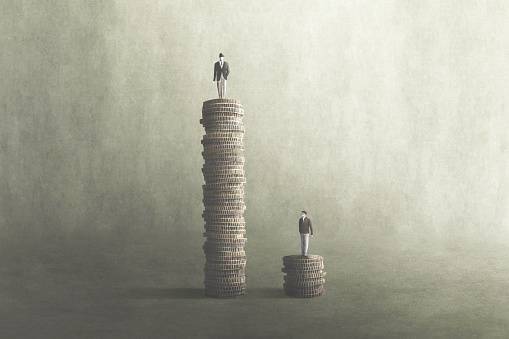
The views about the wealthy contributing to inequality are held mainly by people on the ideological left, although many on the right agree, according to the findings.
Wealthy individuals wielding excessive political power, racial and ethnic discrimination, and flawed education systems are key contributors to economic inequality, according to a Pew Research Centre report that was released this week.
The survey, which spanned 36 countries across various regions, found that a median of 60% believe the political influence of the rich significantly drives inequality in their nations.
The sentiment was particularly strong in Latin America, with over 90% of respondents in Colombia, Brazil, and Peru highlighting the issue.
In sub-Saharan Africa, 75% of South Africans and Kenyans shared the same concern.
The research is based on public opinions of inequality from countries across the Asia-Pacific region, Europe, Latin America, the Middle East-North Africa region, North America and sub-Saharan Africa.
The views about the wealthy contributing to inequality are held mainly by people on the ideological left, although many on the right agree, according to the findings.
“In many countries, people who place themselves on the left are especially likely to say the gap between rich and poor is a very big problem. Those on the left are also particularly likely to see racial and ethnic discrimination and gender inequality as very big problems,” the report found.
“The same pattern appears when it comes to the perceived causes of inequality. People on the left are more likely than those on the right to cite the political influence of the rich,
racial discrimination, and the fact that some are born with more opportunities than others.”
Those living in countries in sub-Saharan Africa and Latin America, in particular, expressed concerns about racial or ethnic discrimination in their countries. Those living in some middle-income countries were likely to view gender inequality as a very big problem.
“In Latin America, for example, six-in-10 Colombians consider it a very big problem, as do roughly half of Peruvians. In sub-Saharan Africa, about half of Kenyans and South Africans hold this view, too.”
Problems with the education system, as well as others being born with better opportunities and technology taking over human jobs, were said to be contributing to the economic inequality gap in some countries.
According to the research, a median of 48% of adults across the countries surveyed think the problems with their nation’s education system “lead to economic inequality a great deal”.
Furthermore, about half or more of those surveyed in Ghana, Kenya and Nigeria say education problems contribute a great deal to economic inequality, compared with fewer than half of the respondents in South Africa.
Meanwhile, 59% of adults in Ghana said that some people working harder than others contributes to inequality, but only fewer people surveyed in Kenya, Nigeria and South Africa felt the same way.
A median of 39% of adults across the countries surveyed say that some people being born with more opportunities than others leads to economic inequality a great deal.
Pew highlighted that people across the globe are generally more pessimistic about their children’s financial future now than they were before the Covid-19 pandemic, and said that their children would grow up to be financially worse off than their parents.



